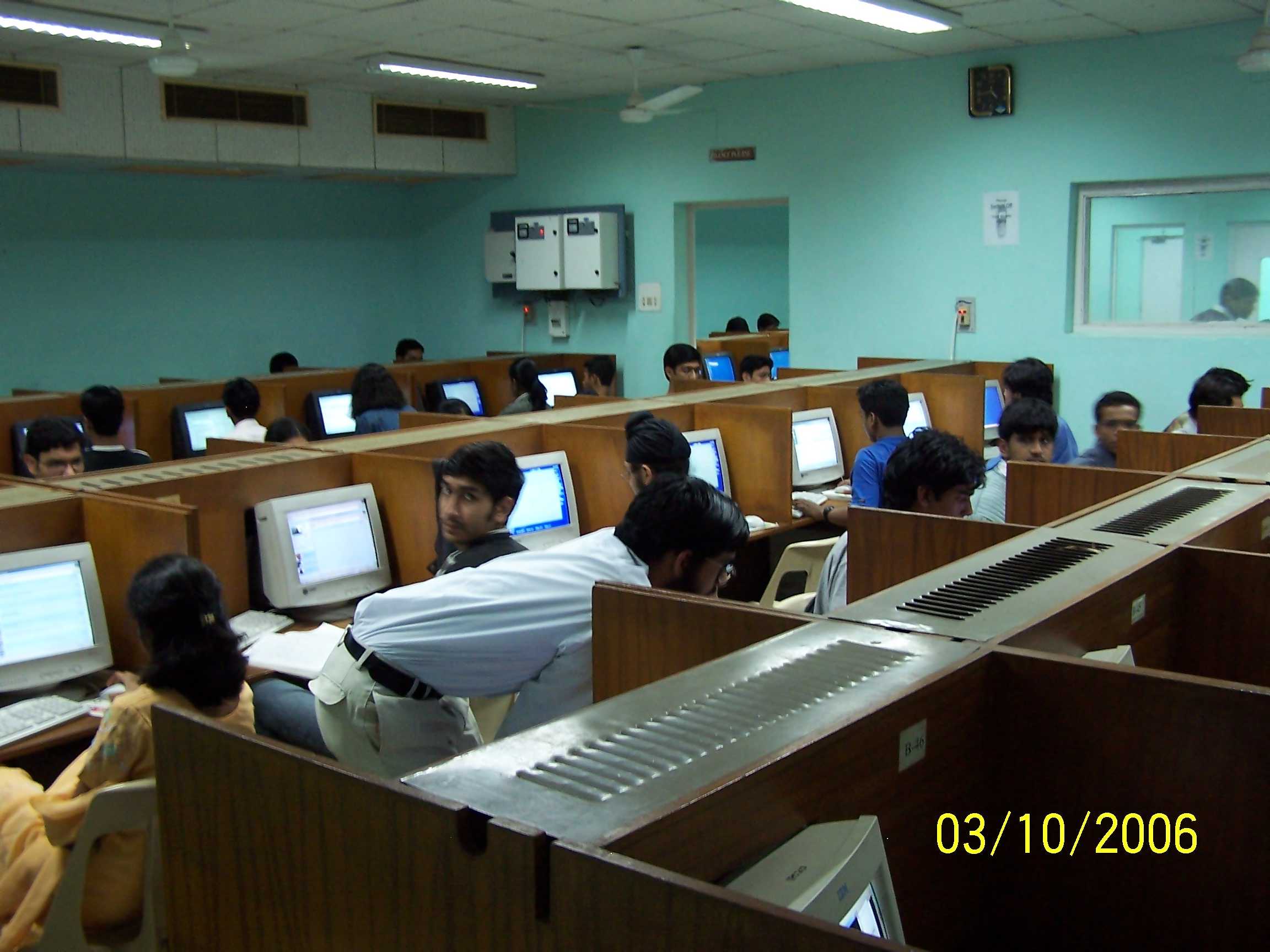

Anyone who's programmed on the old IBM-1130, anyone who's stared in awe at its sheer size and, technically, been in awe of its ability to run a compiler with its meagre 16K of RAM, will cringe at the sight below.

Yes, this is what the IBM-1130 room has become: a bland, featureless, and suffocating terminal room. So what became of that grand dame, you ask? I'll keep my source confidential, but his story goes like this. Apparently, BITS wanted to enshrine the 1130, or at least a piece of it, in the museum. But that preposterously stubborn and eccentric person in charge of the 1130 that we referred to as PSK-VSK (pronounced "pisk visk") would have none of it, and sold it for scrap metal. Many people call it a tragedy. I agree.
On the positive side, the IPC has a Param supercomputer, several clusters and more than adequate access to terminals. The faculty offices, I'm sorry to say, are more or less exactly the same, the same across departments. I have to admire the fact that most spending is directed at improving conditions and facilities for students. Faculty offices come lowest in priority, it would seem. It's not much different the world over.
Perhaps this is the right place to contrast the Computer Science of the old days from that of today. Students are apparently not informed about the department's eminent history, starting with its status as the first official CS department in India, and how it grew from there into the campus powerhouse it is now. The IBM-1130 glory days lasted well into my time. We numbered only a few students in CS since most parents shooed their kids away from this risky new discipline, and most students opted for the then prince of disciplines, EEE. Today, EEE still reigns but as a co-equal to CS and its new stepsister, Information Systems. Each of these now has about 200+ students per batch. Poor Mech and Civil, the latter even further below in the caste system, are the second choice for most students. As for the B group disciplines, the dual-major remains their way out.
What has also changed now is the students' single-minded and early focus on getting their entry-level IT job at a top employer. Because employers vie for these students, there is even a one-up-manship culture amongst the students about the offers they get. Every student in every discipline from their first year onwards appears headed for such an IT job. I heard that when Larsen and Toubro visited campus last year, not one student signed up for an interview.
In general, the early focus is driving students towards intense academics. In some ways, this is good. But it also creates a disturbing sameness among the students, and perhaps diminishes the attention paid to the extremely valuable intellectual content of the broad-based curriculum. The slap to L&T's face is also a good thing, because hopefully, it will result in driving market forces towards higher salaries for Mech and other students.
Next: The New Lecture Theatre Complex